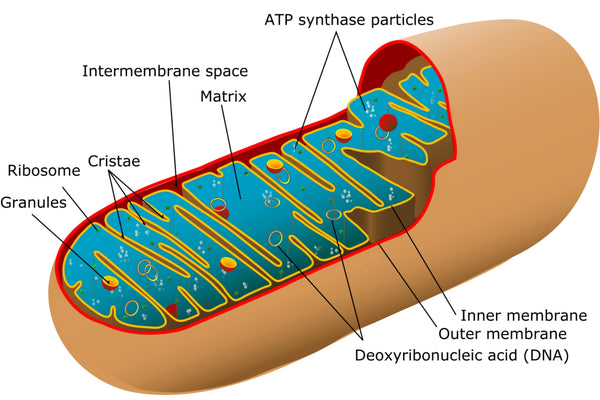
Exploring the Mighty Mitochondria: The Powerhouses of Our Cells
Have you ever wondered how your body gets the energy it needs to function? Well, the answer lies within tiny structures inside your cells called mitochondria. These little powerhouses play a crucial role in keeping you healthy and full of energy. In this blog, we'll dive into the world of mitochondria, explaining what they are, how they work, and why they're so important. We'll also explore a condition known as mitochondrial disease, which can affect these vital cellular components.
What are Mitochondria?
Imagine your cells as bustling factories, constantly working to keep your body running. Just like factories need energy to operate, your cells require energy for all their activities. This is where mitochondria come in. Mitochondria are like the power plants of your cells, producing the energy your body needs to function. Mitochondria have their own special DNA, which is different from the DNA found in the nucleus of your cells. This DNA contains instructions for making proteins that are essential for the mitochondria's job. Think of it as a set of blueprints that tell the mitochondria how to build the energy-producing machinery.
How Do Mitochondria Work?
Mitochondria generate energy through a process called cellular respiration. This is a bit like a mini-power plant taking in fuel and converting it into usable energy. The fuel in this case is glucose, which comes from the food you eat. The mitochondria use oxygen to "burn" the glucose, releasing energy in the process.
Think of cellular respiration as a three-step process:
1. Glycolysis: The first step takes place in the cell's fluid, where glucose is broken down into smaller molecules, releasing a small amount of energy.
2. Citric Acid Cycle: Next, these smaller molecules enter the mitochondria, where more energy is extracted.
3. Electron Transport Chain: The final step happens within the inner mitochondrial membrane. Here, the energy stored in the small molecules is used to create a molecule called ATP, which is like a cell's currency for energy.
Why Are Mitochondria So Important?
Mitochondria are essential for keeping your body functioning. They power everything from blinking your eyes to running, playing, and even thinking. Just like a car needs fuel to move, your body needs energy to perform everyday tasks. Without mitochondria producing ATP, your cells wouldn't have the energy they need to do their jobs.
Mitochondria and Mitochondrial Disease
Now that we understand the importance of mitochondria, let's talk about a condition called mitochondrial disease. This is a group of disorders that affect the way mitochondria work. Imagine if the power plants in a city started malfunctioning – that's what happens in the cells of people with mitochondrial disease. Symptoms of mitochondrial disease can vary widely. Some common signs include muscle weakness, poor growth, fatigue, and problems with the brain and nervous system. These symptoms occur because when mitochondria aren't working properly, cells don't get the energy they need to function. Mitochondrial disease can be caused by genetic mutations – changes in the DNA that affect how mitochondria produce energy. Since mitochondria have their own DNA, mutations can happen there too. Sometimes, these mutations are passed down from parents to their children.
Conclusion
Mitochondria might be small, but they play an enormous role in keeping you healthy and full of life. They're the powerhouses that keep your cells running and your body moving. Through the process of cellular respiration, these amazing structures convert glucose into energy that your cells can use. Unfortunately, mitochondrial disease can disrupt this process, leading to various health issues. As we learn more about mitochondria and how they work, scientists are finding ways to better understand and treat mitochondrial diseases. So the next time you feel a burst of energy after a good meal or a refreshing sleep, you can thank your hardworking mitochondria for keeping you energized and ready to take on the world!





